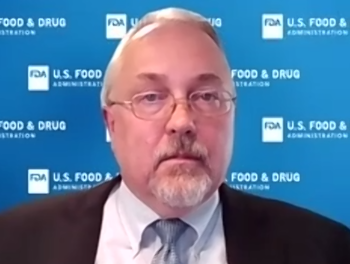From: US FDA; To: Supplement Industry – Tis The Season To Note Disease Claims, Undeclared Drugs
Executive Summary
FDA wraps end-of-year greetings to supplement industry about drug-spiked products labeled as supplements in a bow with officials sharing annual update of their oversight of the industry during a food and drug regulation gathering.
The US Food and Drug Administration has delivered its traditional end-of-year greetings to the dietary supplement industry in an announcement that drug-spiked products labeled as supplements, typically sexual enhancement formulations, still are being found for sale online.
Agency officials also shared an annual update of their oversight of the industry during a food and drug regulation attorneys' gathering.
“Products marketed as dietary supplements continue to be a concern in terms of those that falsely claim to prevent treat mitigate diagnose or cure disease,” said Ann Oxenham, acting director of the Office of Compliance in the FDA’s Center for Food Safety and Applied Nutrition.
After shopping previous years for the “potentially dangerous products” at Amazon Inc.’s and eBay’s e-commerce platforms, the agency for 2021 found the goods on Walmart.com, it announced on 8 December. It found nine sexual enhancement products containing undisclosed drugs on the e-commerce site operated by the world’s largest retail chain.
The announcement noted the FDA’s tainted products database lists nearly 1,000 drug-spiked supplements the agency has identified but says “the agency is unable to test and identify all products that have potentially harmful hidden ingredients.”
The FDA further emphasized its warning by also advising consumers to “be cautious about using certain products, especially those promoted for sexual enhancement, weight loss, bodybuilding, sleep aids or pain relief.” Moreover, consumers using or considering those products “should talk to a health care professional first, as some ingredients may interact with medications or dietary supplements.”
Product marketers in the supplement space, the agency says, aren’t the best sources for product information. Consumers “should search for product information from sources other than sellers and ask a doctor for help distinguishing between reliable and questionable information,” it says.
 cfsan compliance acting director ann oxenham: Enforcement in 2021 found supplement marketers “either preying on vulnerable populations, or exploiting the current pandemic.”
Source: FDLI conference screenshot
cfsan compliance acting director ann oxenham: Enforcement in 2021 found supplement marketers “either preying on vulnerable populations, or exploiting the current pandemic.”
Source: FDLI conference screenshot
In December 2020, the FDA’s Center for Drug Evaluation and Research Office of Compliance announced that 50 brands of male enhancement or weight loss products available on popular e-commerce sites were determined in agency testing to contain hidden ingredients. (Also see "Drug-Spiked Supplements Spread During US Holidays; Excess Yohimbine In Gorilla Root Juice" - HBW Insight, 18 Dec, 2020.)
It's 2016 end-of-year greetings to the supplement industry were notifications alerting consumers and health care providers to 13 products found in examinations of international mail shipments to contain an erectile dysfunction drug sildenafil or a banned drug that previously was indicated for weight loss, sibutramine. (Also see "Drug-Spiked Supplements Spread During US Holidays; Excess Yohimbine In Gorilla Root Juice" - HBW Insight, 18 Dec, 2020.)
As CDER did with its previous December notes, it again pointed out that retailers have a role in preventing sales of drug-spiked supplements.
“While the FDA has engaged in discussions with online marketplaces like Amazon and eBay regarding these issues in the past, we believe they can do more to protect consumers from these fraudulent and potentially dangerous products,” said Donald Ashley, CDER compliance director, in the announcement.
Amazon has responded to the FDA's findings starting in 2018 with a policy for screening supplements sold on its platform. United Natural Products Alliance members recently said Amazon's latest update to the policy, announced in November, may accomplish what the FDA and industry haven’t – a broad purge of adulterated supplements marketed for sexual enhancement and weight loss. (Also see "Amazon Testing Update Could, As FDA And Industry Want, Purge Bad Actors From Supplement Market" - HBW Insight, 16 Nov, 2021.)
‘Health Fraud Did Not Begin With The Pandemic’
At a regulatory professionals' gathering the day after the FDA's drug-spiked supplement announcement, Oxenham and Ashley didn’t give any reason to think the agency considers the problem of drug-spiked supplements to be shrinking.
“I think as we all know, the marketplace for dietary supplements continues to evolve, especially with online sales and further companies may prey on vulnerable populations, or even exploit public health emergencies, like the current pandemic,” Oxenham said during a session the Food and Drug Law Institute’s annual enforcement, litigation and compliance conference.
“Of course, the problem with health fraud products did not begin with the pandemic,” Ashley said during the conference conducted online.
Among the examples from 2021 he noted of fraudulent marketing of supplements as disease treatments was an 81-year-old California businessman who received five warnings from the agency across four years and who recently was convicted on seven counts of wire fraud, 11 counts of selling a misbranded drug and eight counts of selling an unapproved new drug.
Liao, operating the Oeyama-Moto Cancer Research Foundation, received FDA warning letters for violations as a clinical trial sponsor, a clinical investigator, as an independent review board and as a manufacturing facility.
 CDER compliance director donald ashley: "we believe [online retailers] can do more to protect consumers from these fraudulent and potentially dangerous products.”
Source: FDLI conference screenshot
CDER compliance director donald ashley: "we believe [online retailers] can do more to protect consumers from these fraudulent and potentially dangerous products.”
Source: FDLI conference screenshot
In addition to promoting a supplement branded Allesgen as a cure for multiple types of cancer, Benedict Liao was reported by the FDA to have submitted two investigational new drug applications to study the product to treat cancer.
“It's a messy story, playing on the desperation of people looking for any ray of hope,” Ashley said.
He added that CDER informed Liao “the IND applications for Allesgen have been placed on full clinical hold due to deficiencies in the submissions” but Liao “continued his activities, including marketing this product as a supplement and charging patients around $2,000 a bottle.”
Liao’s sentencing in US District Court for the Central California District is scheduled for 14 February. The US Attorney for the district reported on 3 November that Liao faces a statutory maximum sentence of 20 years in federal prison for each wire fraud count and three years’ imprisonment for each of the 19 other counts.
Prosecutors said from July 2012 through June 2014, Liao received at least around $850,000 in revenue from selling Allesgen to customers in multiple states and in foreign countries, and from July 2014 through January 2018, he received another $765,000 from sales of the product.
“It's a shame that we have to have these types of cases and stories at all but when they do occur they serve as good examples of how our system works and demonstrate the public health impact of our rules for compliance,” Ashley said.
The FDA’s investigation of Liao reflects “how actions related to the marketing of unapproved new drugs and actions related to clinical research enforcement can work together to protect the public health, and in this case lead to very significant criminal liability at a very high level,” he added.
Mental Health, Fertility Claims, Too
Oxenham’s review of the year included warnings to firms “either preying on vulnerable populations, or exploiting the current pandemic.”
The warnings include 10 in February to companies selling supplements with claims to cure treat, mitigate or prevent depression or other mental health disorders.
“This is obviously, especially concerning during the ongoing pandemic when consumers are even more susceptible to depression and mental health issues,” said Oxenham, who moved to CFSAN from the FDA Office of General Counsel.
And in May, jointly with the Federal Trade Commission the FDA submitted warning letters to five companies for selling supplements with claims to cure treat or prevent infertility and other reproductive health conditions. (Also see "US Fertility Supplement Marketers Don’t Deliver" - HBW Insight, 26 May, 2021.)
Each firm was making one or more efficacy claims that may not be substantiated by competent and reliable scientific evidence. The companies’ claims to treat fertility and other reproductive issues classify their products as unapproved and misbranded drugs.
Oxenham noted that the Centers of Disease Control and Prevention estimates around 6m us women of childbearing age face difficulty, becoming or staying pregnant. Marketers making violative claims for supplements “seek to profit off the vulnerability and frustration they may feel in that situation,” she said.
